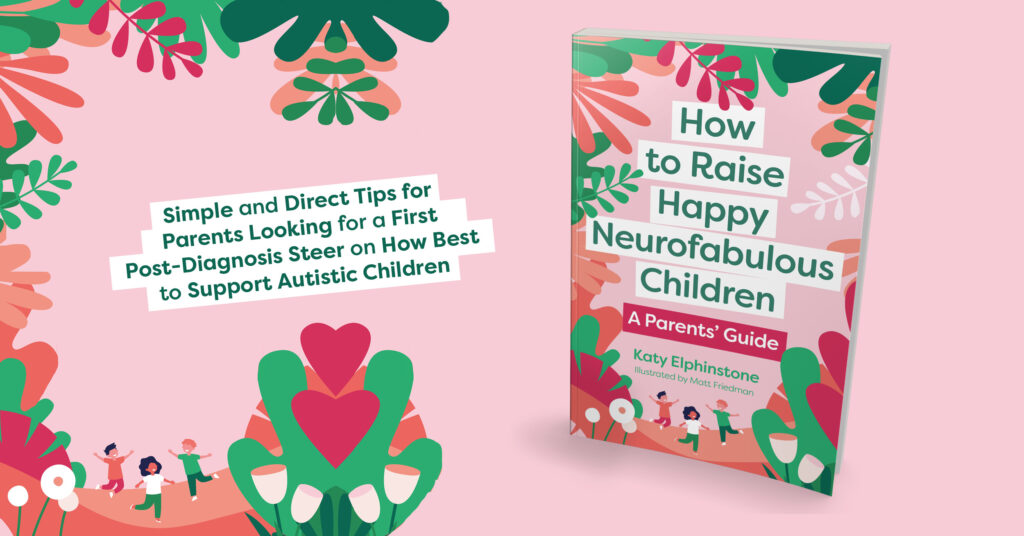
By Katy Elphinstone, author of How to Raise Happy Neurofabulous Children.
Katy Elphinstone, besides her current main work as a parent, is active in the neurodivergent community as an autistic advocate, speaker, and writer.
No. 1: Make a habit of listening to them about things that don’t seem in the least important to you.
No. 2: In daily life, ask them curious, impartial questions about their interests and experiences.
No. 3: Spend a goodly amount of time together, if possible doing things you both like – perhaps outings, movies, ice-creams, and so on.
No. 4: If your child makes something for you, show them you appreciate it. Try and do this through your actions rather than with words, e.g. if they give you a picture, put it on the wall; if they give you a bracelet, wear it; if they make cupcakes, ask them if you can bring one to work for your snack.
No. 5: If they seem low, make one or two quiet loving gestures to show them you have noticed, and to make them feel cared for. Examples could be; bringing them a cup of juice or hot chocolate, covering them with a blanket if it’s cold.
No. 6: Keep any negative comments about them, e.g. how messy they are, how much work it is caring for them, etc., to yourself. (Note: but – outside of the home – do please continue to make it very clear, to society at large, how much work it being a carer of any description – how difficult and demanding it is, and how underpaid, unappreciated, and unsupported you are in our culture due to our oddly-designed economic system that so much devalues this kind of work.[1])
No. 7: If you suspect your child wants to tell you something, try to arrange for some time alone together where they’d be able to do this – e.g. a walk, a movie, cooking together, and so on.
No. 8: If they do start talking, listen carefully to what they say, but without asking a lot of questions or focussing any laser-beam attention onto them.
No. 9: Only offer advice if it’s asked for – in which case, keep it brief and to-the-point, and check in frequently with your child to see if it’s helping them at all – and, if it isn’t, stop talking and do some more listening and observing instead.
No.10: Remain neutral and quite ‘in the background’ while they speak to you, i.e. don’t act openly worried, shocked, opinionated, or dismissive.
No. 11: But do validate their experience, e.g. “Oh my, that sounds really tough,” or, “No wonder you’re annoyed!”
No. 12: Last but not least, be prepared to act on any information you receive. You may see clearly, when your child opens up to you, that there’s some action or change you can make to improve things for them. In some cases, in fact, they might be actively asking for your help!
An afterword
I hope these few little things may help some of us, in some situations at least. It’s just the tip of the iceberg, as there will be many other things that help, and work, to encourage our children to speak to us when something’s on their minds.[2] And, of course, each child and each family is so different!
I’d love to hear any of your own thoughts and suggestions on this topic – perhaps in the comments section below, or else on social media. Links to my social media accounts can be found at www.neurofabulous.org.uk.
And if this little list has been at all helpful or interesting for you, my book, How to Raise Happy Neurofabulous Children contains more lists like these – with both ‘Dos’ and ‘Don’ts’ – covering all kinds of often-tricky areas, many of which specifically relate to neurodivergent children and families.
[1] Hackman, R. (2023). Emotional Labor. Flatiron Books.
[2] Faber, A. and Mazlish, E. (2012). How to Talk So Kids Will Listen & Listen So Kids Will Talk (Anniversary, Updated). Scribner Book Company.